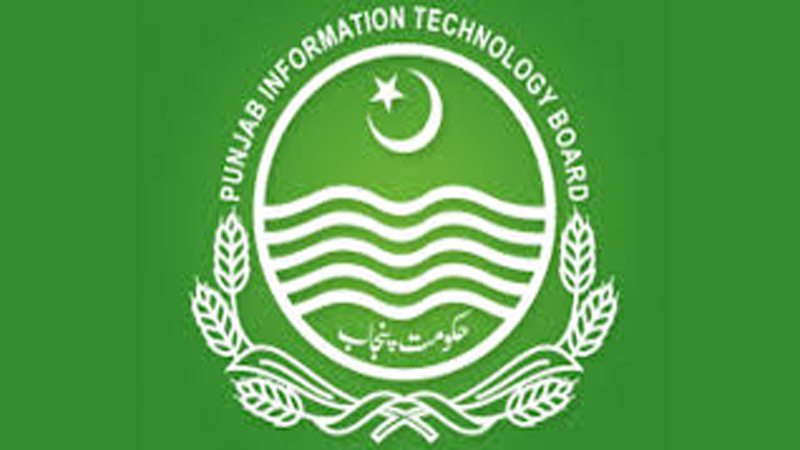PITB to digitally preserve 500,000 pages of historic documents


Daily Times learnt that the archives present in the Punjab Archives were mismanaged and not digitally available for the research scholars and other people interested in that material. The scholars had also raised the same matter on social media that the Punjab Archives which contained one of the biggest collections of historical documents in the subcontinent was undergoing mismanagement and important documents were not accessible for those who wanted to read them or use in their research, sources informed. Further, the sources also added that it was difficult for any researcher to make access to the Punjab Archives which is housed inside the Civil Secretariat of Punjab whereas no document was available online or with proper indexing like in Britain or India. Daily Times learnt that the Punjab Archives houses census reports, civil and military gazettes, official files, historical documents, manuscripts, miniature paintings, lithographs, literature, research papers, journals, magazines, orphan works, newspapers and periodicals which cannot be found anywhere else in the world.
A researcher and student of history Samina Khan said that she had been trying to get through some documents of British and Mughal eras which were available in the Punjab Archives, but due to mismanagement of documents she failed to get the relevant data.
“We were not allowed to take a picture, scan or photocopy any document and under such conditions how can a history student excel in research. I think that unavailability of documents and access to the Punjab Archives is a big hindrance in research on historical events of sub continent. I suggest that all the data should be available for the students and historians for their research otherwise soon people like us would lose interest in this field of study,” Samina Khan remarked.
PITB Chairman Dr Umar Saif said, “I had personally received several emails and messages regarding the streamlining of Archives available in Punjab. Conceiving the idea we prepared a PC-1 and after its approval we started working on this project in collaboration with the Information Technology University (ITU). This type of digitisation is being done for the first time here. Although India digitised their archives but it lacked proper indexing. So if a researcher or a historian requires a data of a certain era or for example Bhagat Singh’s documents, they would be easily accessed by them through the index which we are creating in our archive portal. We have involved known historian Yaboob Bangash, archivists and researchers from Columbia and Harvard University who have researched and grouped up to work on this project of archiving data. We have set up a section at PITB which is working on this task where we have purchased state of art equipment including scanners and printers. We will be physically preserving these so that people can access them whenever they want. The documents will be digitally accessible under authorisation from the Punjab Archives and Libraries Wing as per government rules on a web portal being created by PITB. We would catalogue the materials which are to be scanned as per cataloguing and metadata standards.”
Dr Umar Saif was of the view that this project would safeguard the archival material digitally and reduce the need to displace the fragile original documents, thus minimising their wear and tear whereas the scanned items would be high-resolution images in uncompressed format. Dr Saif informed that the records in the Punjab Archives dated back to the 17th century covering the pre-colonial, colonial and post-colonial era in South Asia and official records in Persian from the Sikh era along with a fine collection of miniature paintings and seals.
“The main objective behind this project is to highlight the history which is at present buried under the dust of times. It is the only way to get our history discussed internationally and nationally and its importance is highlighted among masses. Our younger generation has no clue of our history and as they are users of technology so everything should be brought on to technology for their interest. We want to make archive available for people so that our history is not lost and it is known to everyone and we should take pride in it,” he concluded.
Historian and a private museum owner Faqir Saifuddin said, “The preservation of our history is very important as we have already lost a lot of our history in last 70 years.”
Published in Daily Times, May 25th 2018.
Recent Posts
- Pakistan
Punjab minister hosts dinner to honour award-winning journalists
Punjab Information Minister Azma Zahid Bukhari hosted a special dinner in Lahore to honour senior…
- World
UN and Palestinian officials accuse Israel of blocking Gaza aid at world court
On April 28, 2025, at the International Court of Justice (ICJ), U.N. and Palestinian representatives…
- Lifestyle
Alizeh Shah quits social media, cites emotional struggles and public criticism
Pakistani actress Alizeh Shah has officially quit social media after facing increasing online criticism. Known…
- Business
SBP’s dollar buying unsustainable, economy may grow below 2%: Hafeez Pasha
Former finance minister Dr. Hafeez Pasha has warned that the State Bank of Pakistan’s dollar…
- Top Stories
Gold gets cheaper: Rs 1,600 per tola cut in Pakistan
Gold prices in Pakistan continued to fall as the local market responded to global trends.…
- Sports
Rajasthan royals vs Gujarat titans: Key players to watch in Jaipur showdown
The 47th match of IPL 2025 will see Rajasthan Royals (RR) take on Gujarat Titans…
Leave a Comment